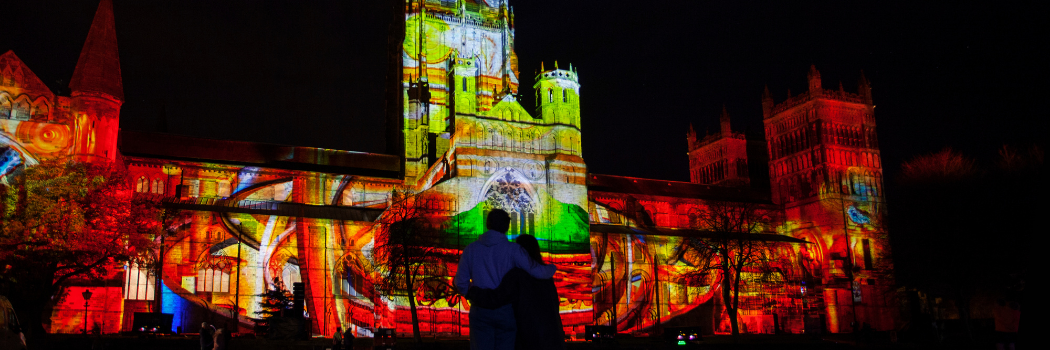Department of History

Welcome to the Department of History
The Department of History submitted 56 members of staff, comprising 54.6 Full-Time Equivalent (FTE) staff, to the REF History UoA. The submission included 12 Early Career Researchers.
Highlights
Top 10 Ranking (Research Power)
Global Research
Wide-ranging research, medieval to modern
Shedding light on medieval science through modern eyes and creative arts
We’re leading the international research project ‘Ordered Universe’ bringing new perspectives to medieval science.
About Us
Departmental strategy, goals and future plans
The Department’s overarching aim is to shed light on our world today through an understanding of the past. Our researchers are inspired by the convictions that we cannot understand our present unless we understand how we got here and that history speaks to the challenges we face now.
Staff
The Department has pursued an ambitious staffing strategy, continuing its investments in established areas of strength, such as modern Africa and medieval and early modern British and continental European history, while expanding into South Asian and reinforcing East Asian and American history. It has added scholars of Black British history and gender and sexuality, and it has built up thematic strengths that break down chronological, geographic, and disciplinary barriers to research, including in transnational and environmental history, the history of science and technology, and economic and social history.
Links to teaching
The Department launched a new interdisciplinary MA in Medieval and Early Modern Studies. In each of the three years of the History degree, the Department embeds research-led teaching into core modules. At second year, for example, staff lead modules in their area of research expertise, allowing them to immerse students in cutting-edge research questions and methods:
- Liam Liburd’s research on British fascism allows him to deepen students’ understanding of the links between British and European fascism and between fascism and imperialism.
- Drawing on his research, Tom Stammers uses innovative visual and material sources, such as prints, monuments, clothing and memorabilia, in his teaching on the French Revolution.
- The work undertaken by Justin Willis with government, think tanks, and NGOs on elections and political violence in contemporary Africa directly informs his teaching on power, legitimacy, and democracy in modern African societies.
Impact and engagement activities
The Department is deeply committed to nurturing local engagement and community outreach in recognition of its embeddedness in the North East. Local and regional links include an annual program of public-facing events called History Now! and links with regional schools, archives, libraries, and museums, such as Julie-Marie Strange’s work to develop a pop-up ‘Global Beamish’ exhibition with Beamish Museum that will tour the North East in 2022.
Indications of the contemporary relevance of what we do include:
- Kevin Waite’s research on a Confederate monument on the Pacific coast of the US, which triggered the monument’s removal and excited widespread comment in the national media.
- Helen Roche’s research on elite Nazi schools generated a wave of media attention on the connections to British schools in the 1930s, including articles in The Times, Guardian, Daily Telegraph, and Daily Mail, as well as radio interviews.
History REF Impact Case Studies
History submitted five impact case studies demonstrating a wide range of impact and beneficiaries.
Click below to read more about our case studies
Ordered Universe
The impact of elections in sub-Saharan Africa
South Sudan: Historical and cultural resources for governance and peacebuilding
Petitioning and campaigning for change in the past and the present
Citizens and Rebels: Ideas of Citizenship and Practices of Resistance
Research Areas
Collaboration is the ethos and enabling mechanism of the Department’s research culture. Staff participate in a variety of thematic workshops, seminars, and reading groups that build conversations across different specialisms. Staff are integrally involved in Department-level research clusters.
Like to Know More?
Academic members of the Department are actively involved in, and in some cases lead, a number of Research Institutes and Centres within the University, such as the Institute for Medieval and Early Modern Studies and the Department’s own Centre for Contemporary African History.
Participation in these Institutes and Centres has helped to embed thematic focal points within the Department that complement the chronological and geographical range of our research.



/prod01/prodbucket01/media/durham-university/research-/ref-2021/Ordered-universe-web.png)
/prod01/prodbucket01/media/durham-university/departments-/history/research-images/The-impact-of-elections-in-sub-Saharan-Africa.png)
/prod01/prodbucket01/media/durham-university/departments-/history/research-images/South-Sudan-image.png)
/prod01/prodbucket01/media/durham-university/departments-/history/research-images/Petitioning-image-282X234.png)
/prod01/prodbucket01/media/durham-university/departments-/archaeology/41129-400X400.jpg)

/prod01/prodbucket01/media/durham-university/departments-/history/77224-500X356.jpg)
/prod01/prodbucket01/media/durham-university/departments-/history/86238.jpg)